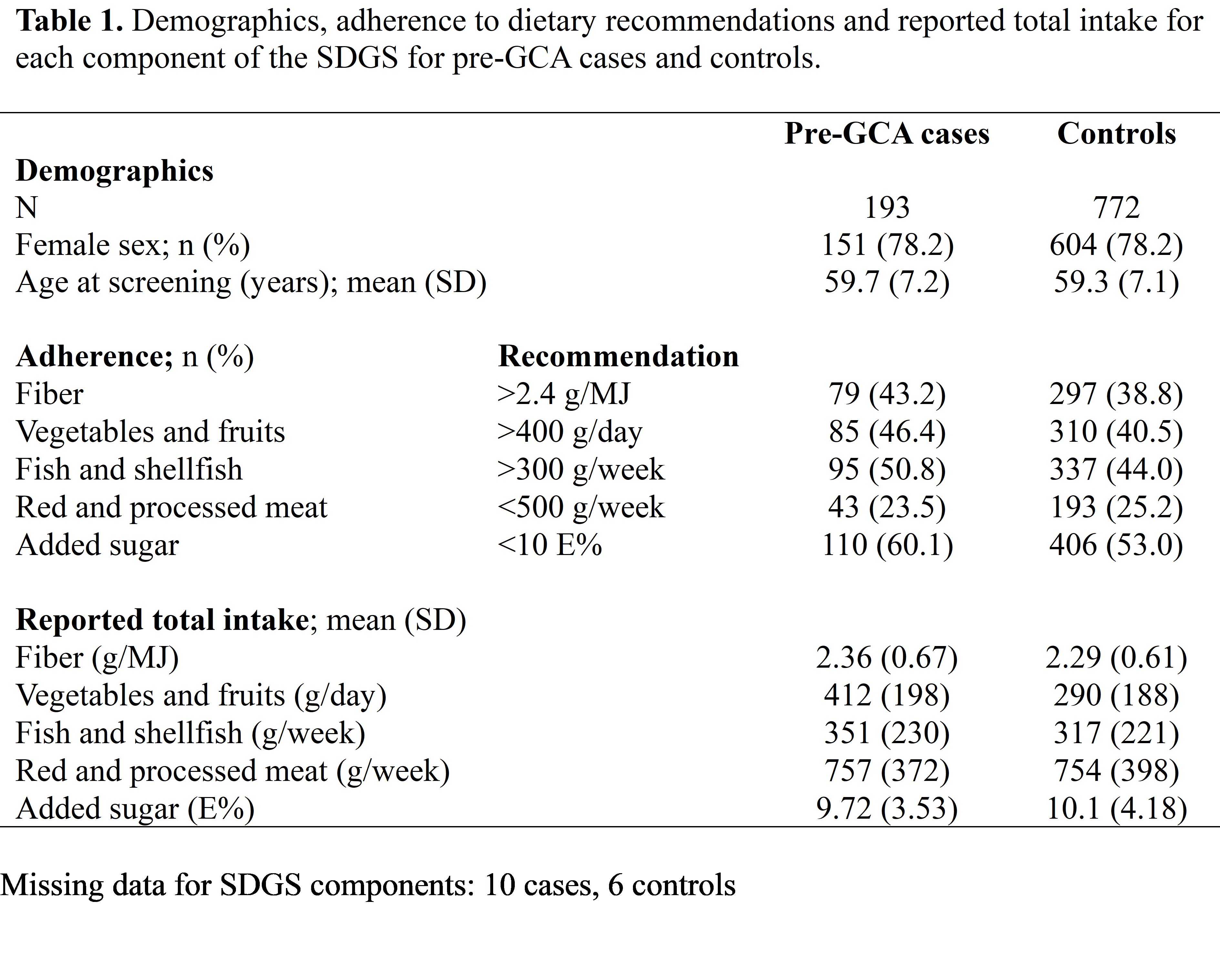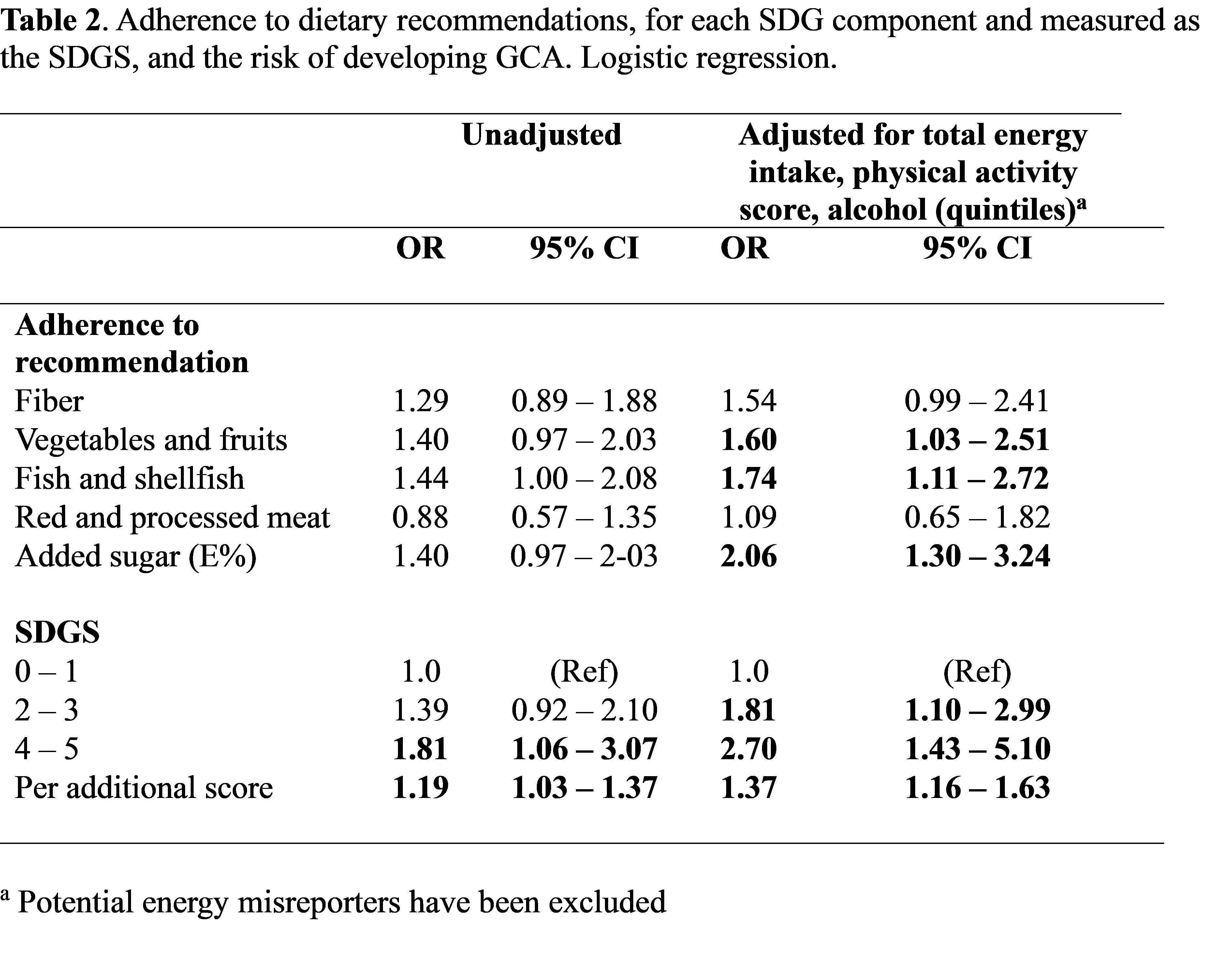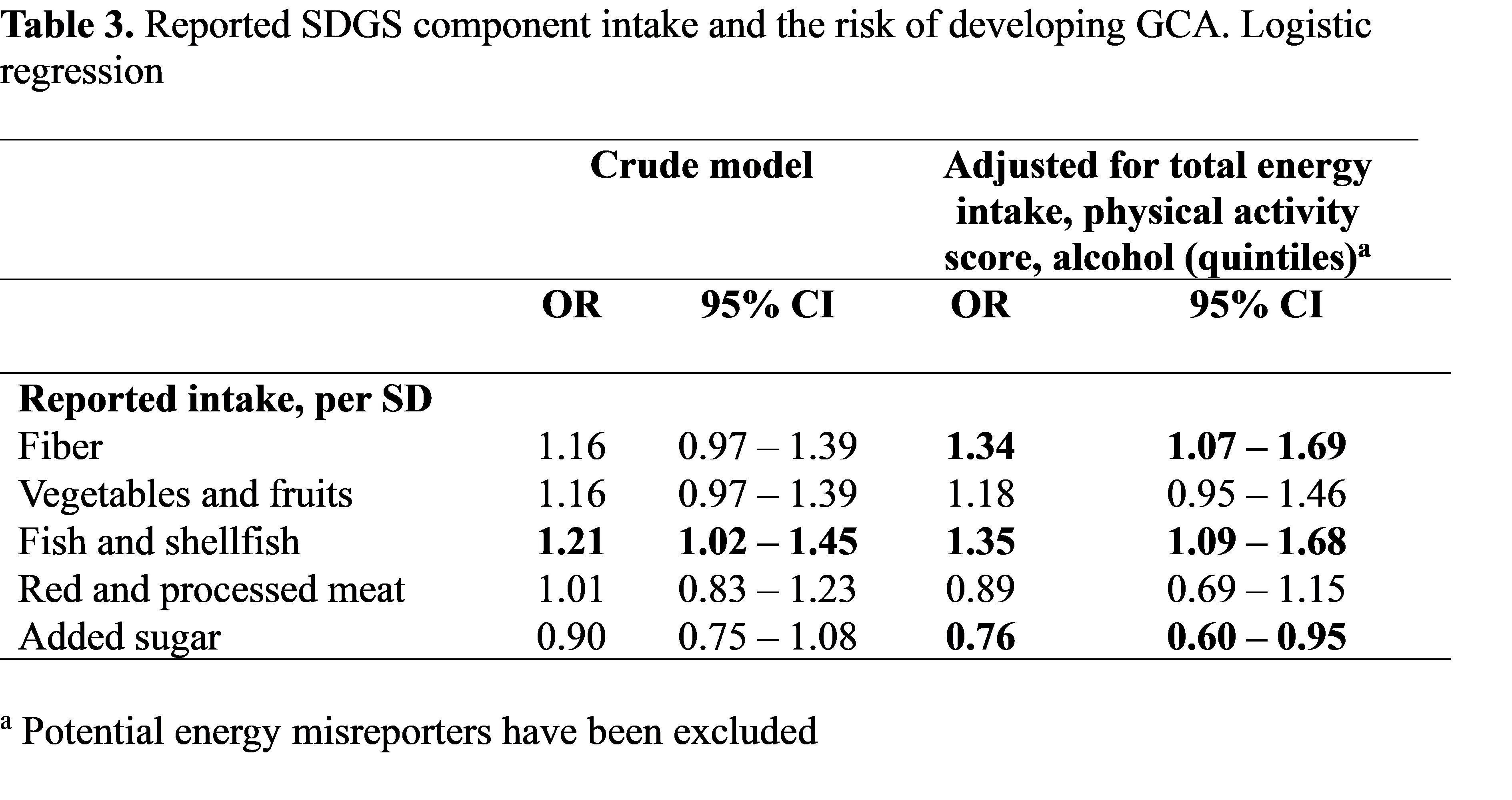Session Information
Date: Sunday, November 17, 2024
Title: Vasculitis – Non-ANCA-Associated & Related Disorders Poster II
Session Type: Poster Session B
Session Time: 10:30AM-12:30PM
Background/Purpose: Giant cell arteritis (GCA) affects large and medium-sized vessels in elderly individuals. Previous studies have reported associations with lower body mass index and lower plasma glucose levels several years before diagnosis. The impact of diet on development of GCA has not been extensively investigated. The purpose of this study was to examine the relation between adherence to dietary recommendations, and quantified intake of the components of these recommendations, and the risk of developing GCA.
Methods: Participants in a population-based health survey who subsequently developed GCA were identified through register linkage and validated in a structured review. Four controls, matched for age, sex and year of inclusion in the survey, were selected for each case. Data on lifestyle, including diet, was collected using a questionnaire and diet history method, which included a 7-day food diary, a 168-item questionnaire and a 1-hour interview. Diet quality was assessed using the Swedish Dietary Guidelines Score (SDGS, range 0-5), which included adherence to recommendations on intakes of fiber, fruits and vegetables, fish and shellfish, red and processed meat, and added sugar. The relations for the SDGS, adherence to each component and total intake of each component with subsequent development of GCA were assessed using logistic regression analysis, including the case-control group as a categorical variable. The models were adjusted for total energy intake, leisure-time physical activity and alcohol intake. Potential misreporters of total energy intake were excluded from the adjusted models.
Results: There were 193 incident cases of GCA (78% women, mean age at diagnosis 75.4 years, 65% biopsy positive, mean time from inclusion in the health survey to GCA diagnosis 15.7 years). Demographics, adherence to dietary recommendations and reported total intake for each component of the SDGS for pre-GCA cases and controls are shown in Table 1. High adherence to dietary guidelines (SDGS 4-5 vs 0) was associated with subsequent development of GCA (adjusted odds ratio 2.70; 95% confidence interval 1.43-5.10). In adjusted models, adherence to recommended intake of added sugar (< 10% of energy intake), fish and shellfish ( >300 g/week) and vegetables and fruits ( >400 g/day) was associated with an increased risk of GCA (Table 2). A reduced risk was seen with higher quantified consumption of added sugar, and an increased risk with higher intakes of fiber and fish and shellfish (Table 3).
Conclusion: An overall high diet quality, with limited intake of added sugar, high intake of fiber and fish and shellfish, and recommended intake of vegetables and fruits, was independently associated with an increased risk of GCA. This is compatible with the concept of an increased risk of GCA in subjects with a healthy metabolic profile, and of metabolic regulation of early disease mechanisms in the development of GCA.
To cite this abstract in AMA style:
Kwanyuen P, Wadström K, Sonestedt E, Fors C, Bäcklund R, Mohammad A, Jacobsson L, Turesson C. Adherence to Dietary Recommendations and the Risk of Developing Giant Cell Arteritis; A Nested Case-Control Study [abstract]. Arthritis Rheumatol. 2024; 76 (suppl 9). https://acrabstracts.org/abstract/adherence-to-dietary-recommendations-and-the-risk-of-developing-giant-cell-arteritis-a-nested-case-control-study/. Accessed .« Back to ACR Convergence 2024
ACR Meeting Abstracts - https://acrabstracts.org/abstract/adherence-to-dietary-recommendations-and-the-risk-of-developing-giant-cell-arteritis-a-nested-case-control-study/



